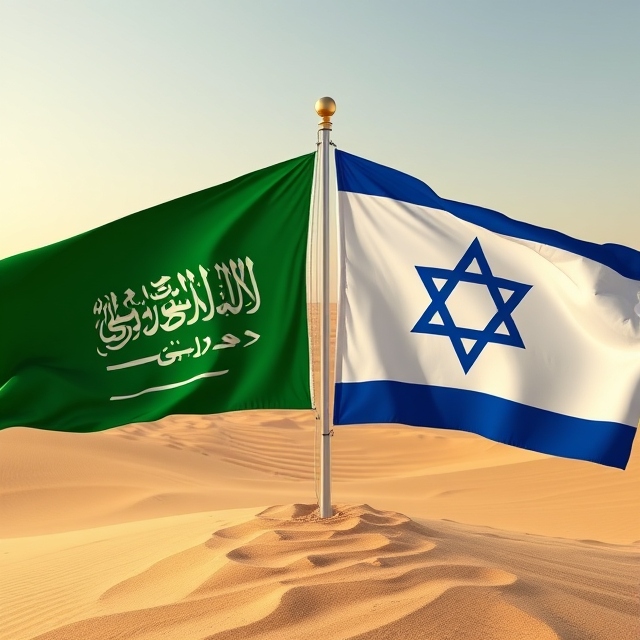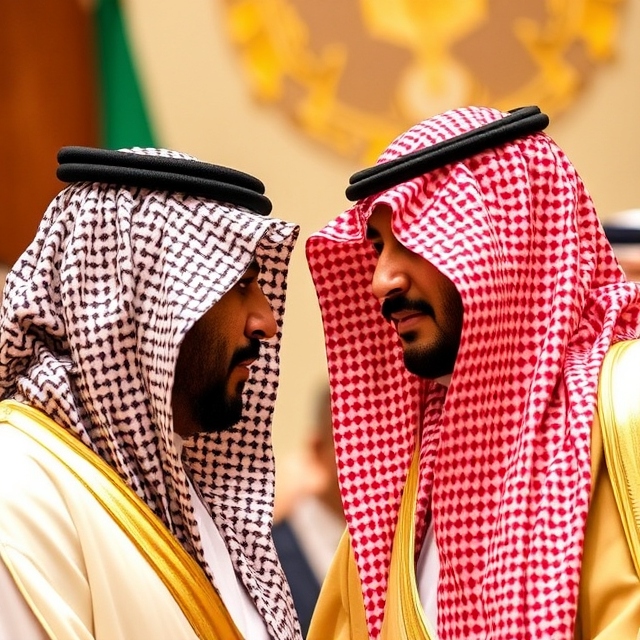
Saudi Arabia’s evolving pragmatism reflects a shift toward modernization and regional stability, softening its stance on recognizing Israel while maintaining conditions tied to Palestinian statehood.
The Abraham Accords have paved the way for increased regional cooperation, fostering economic, cultural, and security ties between Israel and pragmatic Arab states like the UAE and Bahrain.
Saudi-Israel normalization could significantly alter regional geopolitics, undermining ideological groups like the Islamic Brotherhood and showcasing pragmatism as a pathway to Middle East stability and peace.
West Asia has been a major center for global geopolitics, a region that has witnessed some of the biggest wars and significant political problems. However, the central issue has revolved around Israel. The major complexity of this problem is that it is driven more by religious fanaticism than by geopolitical interests. This is why the region remains divided, with tensions between Jews and Muslims, as well as differences within the Muslim world itself, such as between Shiites and Sunnis, which manifest in the rivalry between Iran and Saudi Arabia.
The issue of Israel has been a source of division, particularly among Muslim countries. However, in recent times, pragmatic countries like the United Arab Emirates and Bahrain have made efforts to recognize Israel under the Abraham Accords, signed in 2020.
Details of Abraham Accords

The Abraham Accords have led to greater economic partnerships through increased trade, investment, and technology exchanges, particularly in sectors including energy, water, healthcare, and tourism. They have also encouraged security cooperation, including intelligence sharing and counterterrorism efforts, particularly addressing regional threats. Additionally, the agreements have promoted cultural, scientific, and educational exchanges to enhance mutual understanding. Direct flights have been established between the UAE, Bahrain, and Morocco, boosting tourism and business ties. The accords also left room for other nations to join in normalizing relations with Israel.
Israel and Saudi Arabia
Saudi Arabia and Israel have long had a tense and complicated relationship, largely driven by Saudi Arabia’s strong stance in support of the Palestinian cause and its opposition to Israeli policies in the occupied territories. Since the creation of Israel in 1948, Saudi Arabia, along with other Arab nations, refused to recognize Israel and did not establish diplomatic relations.
In 1979, following Egypt’s peace agreement with Israel, Saudi Arabia and much of the Arab world rejected the move, viewing it as a betrayal of Palestinian interests. Despite this, recent years have seen a shift, especially due to shared concerns over Iran’s growing influence in the region. This has led to behind-the-scenes cooperation, particularly in security and intelligence matters. In 2002, Saudi Arabia put forward the Arab Peace Initiative, which offered normalization of relations with Israel if a Palestinian state was established within the pre-1967 borders. While Saudi Arabia has not formally recognized Israel, the country’s stance has become more pragmatic, allowing for limited interactions. However, it continues to insist that full normalization will only happen if there is a resolution to the Israeli-Palestinian conflict.
Why Saudi Arabia Matters for Israel
If Israel receives political recognition from Saudi Arabia, it would be the final nail in the coffin for Israel’s political acceptance in the region. This would undermine the influence of the Islamic Brotherhood, which has historically supported Palestine, as Palestine’s cause has been a significant political tool for countries like Saudi Arabia.

Historically, Saudi Arabia’s stance has been that political recognition of Israel is only possible when a Palestinian state is created. Saudi Arabia has been a de facto leader of the Islamic Brotherhood and has always stood for Palestine. However, in recent times, Saudi Arabia has become more pragmatic, understanding the dangers of extreme religious fanaticism and conflict. The country is opening up its economy, pursuing modernization, and making social reforms, such as granting rights to women and seeking foreign investments. This shift is not just about diversifying the country’s economy but also about ensuring political stability and offering an example of progress in the region.
Saudi Arabia’s Demands
As a result, there are reports suggesting that Saudi Arabia is willing to soften its conditions for recognizing Israel. One key condition that remains is that Israel sets terms under which Palestine would be created. Additionally, Saudi Arabia’s recognition of Israel could be facilitated by military guarantees from the United States and the creation of a civilian nuclear power plant.
Conclusion
If political recognition of Israel increases in the region, it would boost American influence and mark a significant shift in the dynamics of the Israeli-Palestinian conflict. Saudi Arabia’s recognition of Israel would also serve as a lesson in pragmatism for other countries, as it could lead to the resolution of the Palestinian cause and help reduce tensions in the region. This shift would ultimately impact the broader Islamic Brotherhood and show that pragmatism, rather than ideological fanaticism, can lead to stability and peace in the Middle East.
Reference:
1)https://www.middleeasteye.net/news/israel-saudi-arabia-closer-normalisation-deal-report
Satish Chogule is pursuing a Masters in Political Science at the University of Kolhapur, Maharashtra. He has contributed to several online platforms on international affairs and global developments. Views expressed are the author’s own.
